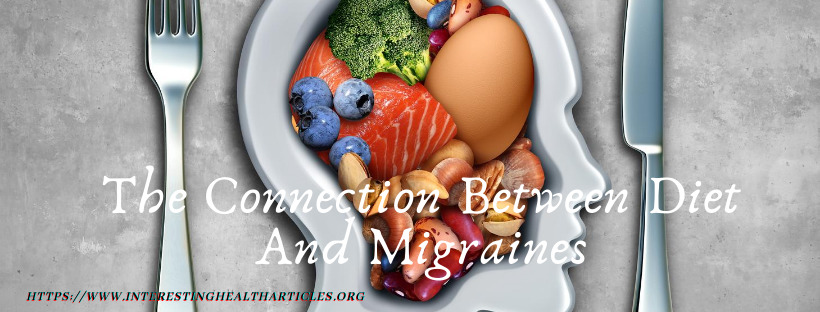The Connection Between Diet And Migraines
If you’ve ever had just a normal headache before, you know how unpleasant it can be. Now imagine having one 1000x worse than that-welcome to a migraine. Migraines affect millions of people around the world, causing hundreds of lost work-hours. And the worst part? Its causes are misunderstood at best, and unpredictable to treat under best conditions.
Take for example the connection between your diet and migraines. It is known that there are certain foods that can trigger migraines, although they do not 100% of the times cause it. The relationship is complicated to say the least.
What is found, however, is that if you are able to find a food that is a possible trigger for you, do your best to avoid it in the future to minimize the occurrence of subsequent episodes.
Which Foods Are Most Associated With Causing Migraines?
The list of foods that is “associated” with causing a migraine is long and inexhaustible. However, an association does not equate to guilt, or every single food would be put under the radar. Rather, the following foods have been observed to cause migraines in a large number of people, adding substance to their claims. Commonly implicated foods include:
• Caffeinated Beverages/Foods- coffee is consumed by millions of persons on a daily basis, but could end up being one of the worst triggers of migraines. While the caffeine in coffee is exceptionally useful in treating migraines when they occur, you can experience rebound migraines if you do not consume caffeine in similar fashion subsequently.
• Alcohol- alcohol is notorious for causing migraines and headaches during the “hangover” phase, but can cause them in smaller doses as well. If alcohol does not directly cause migraines, it can promote it by causing dehydration. Being dehydrated is associated with development of headaches, so be wary if alcohol is a possible trigger of yours.
• Chocolate- chocolate is a unique migraine trigger, as it contains both mild amounts of caffeine, and copious sugar, both known triggers. Sugar may provide a short term boost in energy and “feel good” endorphin rush, but the crash that follows is opportune timing for a migraine to occur.
• Cheeses- cheese is rich in an amino acid named tyramine, strongly believed to cause changes in blood vessels of the scalp and pave the way for migraine development. If you find fermented cheeses to be a trigger point, it is best to avoid, since cheese can make subsequent triggers more potent.
• Processed Meats- in particular, those containing nitrates or sulphites have been implicated in provoking migraine symptoms. The sodium content may also be the cause of migraines.
• MSG- this is a food additive common in Chinese meals, and allegedly involved in causing horrible migraines. About 15% of the population that consumes this additive is susceptible to migraines, but it is often overlooked as not a trigger.
Why Do These Foods Cause Migraines?
Migraines cannot be explained well to date, as research is currently being undertaken to further understanding. However, some explanations include:
• Causing Dilation Of Blood Vessels Under The Scalp- certain foods (especially alcohols) cause the vessels under the scalp to dilate and lead to throbbing migraines. Use of vessel constrictors (such as caffeine) provide immense relief, but may cause other migraine like symptoms themselves.
• Causing Changes To The Blood Vessels- the amino acid tyramine is implicated in causing vessel changes that predispose the individual to more subsequent migraine attacks.
• Dehydration/ Changes To Blood Electrolyte Levels- this explains why foods high in sodium (MSG) and those that cause dehydration (such as alcohol) cause Migraines. If water concentration does not remain constant, negative effects ensue.
Conclusion
Migraines are a beast of their own. They may not be fully understood, but one of the best ways to prevent them is to establish and then avoid your known triggers.



